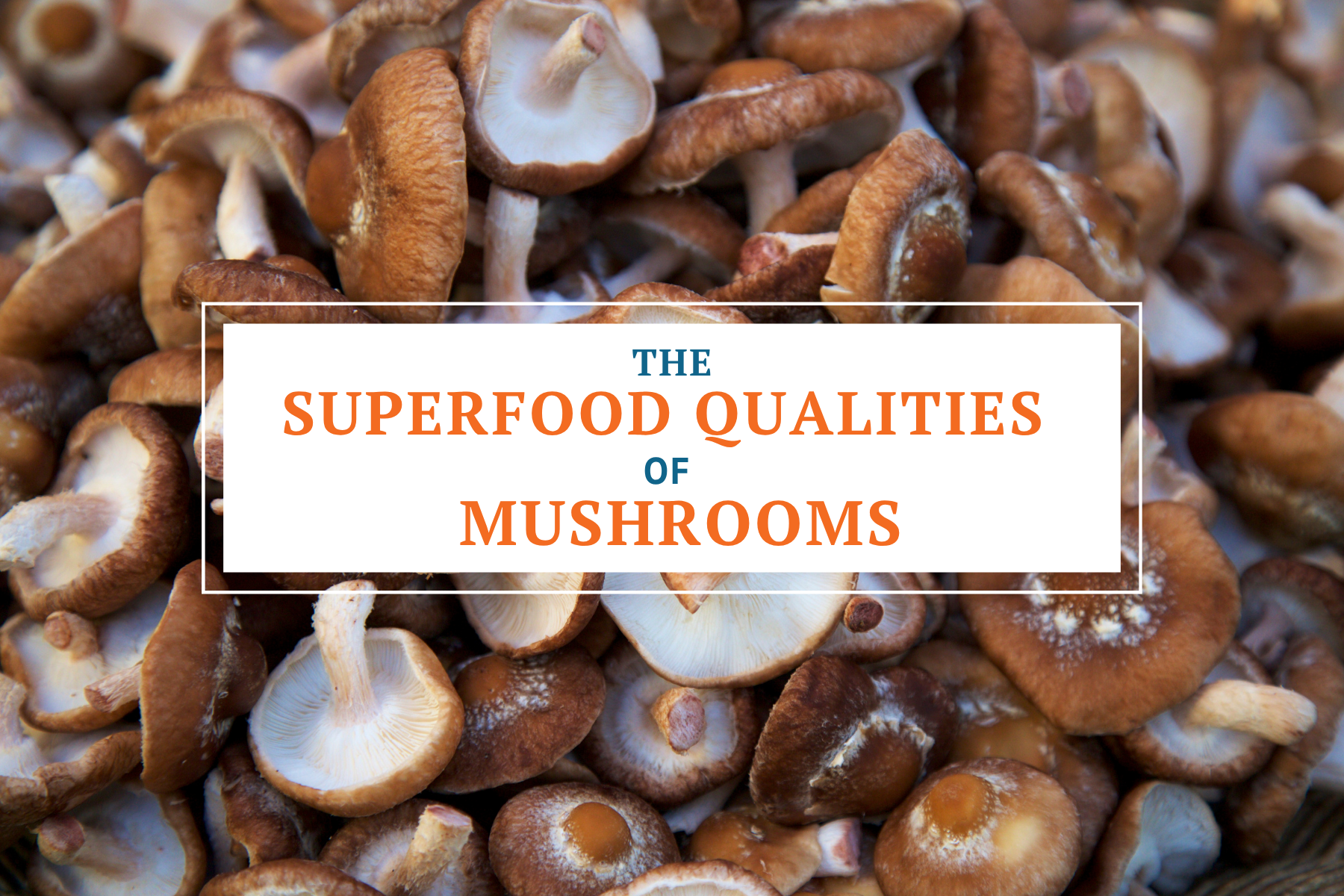Mushrooms are nutrient-dense foods rich in bioactive compounds that support antioxidant defenses, immune balance, and overall vitality as part of a healthy diet and lifestyle.
What Are "Superfoods"?
The word superfood describes foods that provide high nutritional value with relatively few calories. While it's not a scientific or regulatory term, it's often used for whole foods that naturally contain vitamins, minerals, fiber, and antioxidant compounds that help support normal body functions.
Mushrooms fit perfectly into this category—they're low in fat, rich in fiber, and contain unique molecules not found in plants or animals.
Why Mushrooms Are Considered a Superfood
Mushrooms are neither plant nor animal; they're fungi, and their chemistry is unique. They provide beta-glucans, ergothioneine, and polysaccharides—bioactive compounds that have been studied for their role in supporting antioxidant capacity, healthy immune activity, and normal inflammatory balance.
Reviews highlight that mushroom-derived polysaccharides may enhance the body's antioxidant systems and help maintain immune homeostasis (Zhao et al., 2021, Murphy et al., 2023 ).
Top Health-Supporting Nutrients Found in Mushrooms
- Antioxidants: Compounds like ergothioneine and glutathione help neutralize oxidative stress, supporting normal cellular health (Kalaras et al., 2017).
- Beta-glucans: Naturally occurring fibers that may help maintain healthy immune system signaling (Murphy et al., 2023).
- Polysaccharides: Complex carbohydrates shown to promote balanced immune and antioxidant activity (Maity et al., 2021).
- Prebiotic fibers: Mushrooms act as natural prebiotics, helping nourish beneficial gut bacteria (Jayachandran et al., 2017).
- Micronutrients: They're a good source of potassium, copper, selenium, and certain B-vitamins such as riboflavin and niacin.
Popular Functional Mushroom Varieties
Different mushrooms contain distinct nutrients and functional compounds. Here are some of the most studied varieties:
- Reishi (Ganoderma lucidum) – Traditionally used to support relaxation and immune balance.
- Chaga (Inonotus obliquus) – Known for its antioxidant compounds that help protect cells from oxidative stress.
- Maitake (Grifola frondosa) – Contains beta-glucans that may help maintain metabolic and immune health.
- Cordyceps (Cordyceps militaris) – Studied for its natural compounds that support energy metabolism.
- Shiitake (Lentinula edodes) – Provides beta-glucans that contribute to immune and cardiovascular wellness.
- Lion's Mane (Hericium erinaceus) – Contains hericenones and erinacines that help support cognitive function.
- Turkey Tail (Trametes versicolor) – Rich in prebiotic fibers that promote gut health and microbial balance.
- Oyster Mushroom (Pleurotus ostreatus) – Provides ergothioneine, an antioxidant amino acid.
Ways to Add Mushrooms to Your Diet
- Add sliced or sautéed mushrooms to soups, grain bowls, or omelets.
- Blend mushroom powder into coffee, tea, or smoothies for a mild, earthy boost.
- Use mushroom powder in sauces, broths, or salad dressings.
- Roast or grill hearty varieties like portobello as a meat substitute.
Science at a Glance
Here's what current research says about mushrooms and health:
- Antioxidant Defense: Mushrooms are one of the few natural sources of ergothioneine, which supports the body's defense against oxidative stress (Kalaras et al., 2017).
- Immune Support: Mushroom beta-glucans may enhance innate and adaptive immune function (Murphy et al., 2023).
- Gut Health: Mushroom polysaccharides act as prebiotics, supporting beneficial gut microbiota and digestive wellness (Jayachandran et al., 2017).
Key Takeaways
- Mushrooms are nutrient-dense, low-calorie foods rich in antioxidants and fiber.
- They support the body's natural defense and repair systems as part of a balanced diet.
- Different species offer unique nutrient profiles—variety matters.
*These statements have not been evaluated by the Food and Drug Administration. This content is for informational purposes only and not intended to diagnose, treat, cure, or prevent any disease. Always consult a qualified healthcare professional before making changes to your diet or supplement routine.*
References
- Kalaras, M. D., Richie, J. P., Calcagnotto, A., & Beelman, R. B. (2017). Mushrooms: A rich source of the antioxidants ergothioneine and glutathione. Food Chemistry, 233, 429–433.
- Zhao, C., Yang, C., & Liu, B. (2021). Mushroom polysaccharides: Chemistry and biological functions. Frontiers in Pharmacology, 12, 646802.
- Murphy EJ, Fehrenbach GW, Abidin IZ, Buckley C, Montgomery T, Pogue R, Murray P, Major I, Rezoagli E. Polysaccharides-Naturally Occurring Immune Modulators. Polymers (Basel). 2023 May 19;15(10):2373.
- Maity, P., et al. (2021). Biological activities of mushroom polysaccharides: A comprehensive review. International Journal of Biological Macromolecules, 183, 2041–2054.
- Jayachandran, M., Xiao, J., & Xu, B. (2017). A critical review on health promoting benefits of edible mushrooms through gut microbiota. International Journal of Molecular Sciences, 18(9), 1934.



